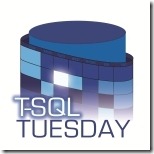Considering that I run a database consultancy, I should be fairly biased on this question, and suggest that you can’t possibly cope without database professionals – except that I don’t really believe it all that much. I do believe it, and I’ll demonstrate why in this post – but the question of whether or not you actually get proper database people in or not isn’t quite as clear as you’d maybe think. 
At university, I skipped the database subject – people said it was easy marks, but I was more interested in doing subjects that appealed to me, rather than ones that I thought would be boring and simple. I did Pure Maths subjects though, ones like Number Theory, Logic, and Set Theory. And in my Computing degree, I did interesting subjects like Machine Learning (using the LISP language), and Programming Paradigms (using Prolog and Haskell).
When I left university and got a job in a consultancy doing software development, I found that databases were a necessary part of just about every project we did. The language of choice for interfaces was VB3 back then (although on many projects it was PL/SQL too), but there was also a lot of database code needed, in either PL/SQL or T-SQL.
Databases just clicked with me, fitting in my Maths background better than I could have imagined, but with a combination of using different paradigms to fit the situation, basically being prepared to change hats into something that was List-focussed when using LISP, or Logic-focussed for Prolog, I found that I could quite easily fit into a Set-focussed paradigm for the data work. I also noticed that many of the people around me didn’t do this, and that their code generally paid the price for their lack of adaptability.
Later, when I managed to work out that it would be good to specialise, I chose SQL Server as the area that I wanted to specialise in, and have pushed further into the set-focussed paradigm. In the BI space, it applies even more. I enjoy MDX as a language, largely because I feel that it’s even closer to Set Theory than its T-SQL cousin. T-SQL seems remarkably forgiving for those people who don’t approach it with the right hat, whereas MDX seems to require the right approach.
And so I come back to the original question. I don’t know whether your organisation needs database professionals*, but I do know that your organisation needs people who can apply the right paradigm to their work, which means having a set-focussed paradigm for database work. If your non-database people fit this, and also possess the appropriate respect for data (and many other temperaments which are useful), then perhaps you already have people who will do.
*But if you would like to get some database professionals in, feel free to contact LobsterPot Solutions, of course. 😉
This Post Has 2 Comments
Rob,
Interestingly my story is more or less the same, coming from a Computer Science Mathematical background all the way to SQL server and BI. But I also apply by theoretical basis towards formal transformation and temporalisation of data/information models. See Data Vault or Object Role Modeling as examples where a formal approach works very well.
A course on Set Theory should be mandatory pre-requisite for all people wanting to learn TSQL